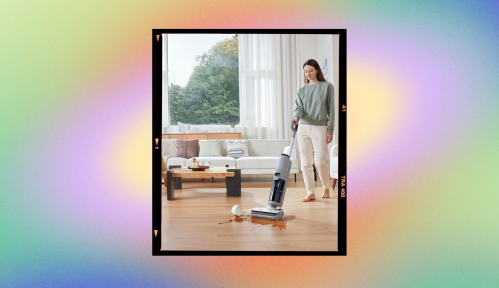When I made the decision to get back into the (mental health) game a year after moving to Chicago from New York, I prepared myself for the emotionally draining search that was finding a new therapist. As it usually went, I was skeptical. It always took time that was limited, patience I was running out of, health insurance (which I was very privileged to have), and an ability to succinctly summarize my last two decades of life in the same hour-long session I’d have with every prospective therapist I’d find on ZocDoc. In the end, I’d either book a second session at the end of the first, or send a message that would read, “I’m sorry, I just don’t think it’s going to work out.” Yeah, it felt a lot like dating.
It wasn’t until I started my search in Chicago that I came to the important realization that every therapist I had met with since Pre-K had been white. It wasn’t something I previously thought twice about, considering my high school, college, and workplaces were predominantly white as well. As a 20-something Latina, I pushed those feelings of isolation aside and accepted what I considered to be a normal part of my everyday life. It wasn’t ideal, but what could I do?
But this time was different. The a-ha moment inspired me to take a more mindful approach to my search. It only took two different consultations before settling on my current therapist, a fellow Latina who understands what it means to grow up in a strict household that’s reminiscent of Jane the Virgin. She doesn’t ask me to explain certain nuances and instead nods and offers a sneak peek at her own experience of not being able to attend friends’ slumber parties in middle school. We would both get the tienes tu propia cama en la casa (you have your own bed in the house) excuse from our parents, and I would share how an event so trivial fed into feelings of that same isolation and, if I’m being honest, FOMO (before it was even a thing).
I would share how, as I got older, calling out the inherent machismo that still runs rampant in our community became less of a chore and more of a necessity–and how doing so seemed to unlock a hidden confidence that, as a teenager, was a rare and intoxicating state to be in. “Oh, I understand completely,” she would respond when I would finish recounting a memory. And it was enough.
Elizabeth Ohito, LCSW, a therapist who practices in Silicon Valley, echoed my and other POC’s experiences when I asked for her input on why some people link up with therapists of a similar racial or ethnic background.
“It can offer a deep sense of resonance and connection to your lived experience as a person of color,” Ohito tells me. (Ohito is a POC herself.) “Sometimes it can be burdensome when clients feel they have to provide context on issues of inequality or that they have to qualify their experiences when they are not sure that their therapist understands. With a clinician of color, there can be the benefit of going deeper on vulnerable topics of race and culture without code-switching.”
Fortunately, there are a growing number of directories out there to help tailor your search based on your specific background. A few include The National Queer and Trans Therapist of Color Network, Therapy for Black Girls, Therapy for Latinx, and sliding scale options at Open Path Collective.
“Sometimes finding the right therapist can be a process,” adds Ciara L. Hill, a licensed child and family therapist, and woman of color, based in Washington, D.C. “But my advice is to never settle or feel obligated to keep going to a therapist that you don’t feel comfortable with or connected to, in a healthy and therapeutic way.”
In the end, true growth comes from the vulnerability you’re willing to put forth and having that be embraced, with zero judgment, by your clinician. And when that day comes, I hope you feel as relieved as I did when I ended the “dating” portion of my mental health journey and was finally able to get to work on myself.
Sign Up for Our Daily Newsletter
Get all the latest in wellness, trends, food, fitness, beauty, and more delivered right to your inbox.
Got it, you've been added to our email list.











